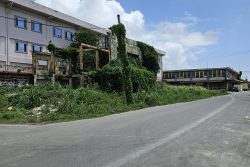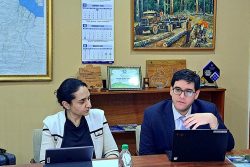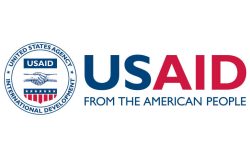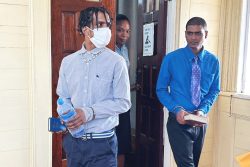Amazon Caribbean Guyana Ltd (Amcar) has announced that it will no longer be processing pineapples for export to Europe as its contract with the Mainstay/Whyaka Far-mers has come to an end.
In a press release yesterday, Amcar said the Mainstay/Whyaka village captain informed the company in a letter that they are seeking another partnership to operate the factory, “as there was no production this year.”
“The Council is simply blaming the Company for not operating the factory since July 2013, but the truth is much more complicated,” Amcar said. According to the company, the crop of 2013 was estimated by the village council and association at 47,000 pineapples. How-ever, only 14, 843 pineapples were sold to the factory and only 26, 828 jars of pineapple were produced; making it unprofitable. Amcar says it has a potential market for 500,000 jars of pineapples per year for a value of $125 million. This would require farmers to supply over 270,000 orga-nic pineapples that meet the IFS standards earning close to $46 million.
This year, while the Farmers Association did not make figures available to the company, only a few thousand pineapples were available. Following a discussion between the company’s CEO and the village captain in April, the factory was not opened.
The Company said a number of factors contributed to the decline. First, the farmers did not follow the initial plan. “They focused on price, not volume and did not increase their acreage to sustainably supply the factory,” Amcar said, adding that aging farmers, the death of some farmers, the abandoning of farms and the lack of interest displayed by the younger generation also contributed to the decline. The Company also tried to introduce new techniques to the Association. And was met with firm resistance.
Further, the last audit by a Colombian consultant representing Eocert International pointed out the shortcoming of the project, particularly at the level of farmers. The factory was certified for another year while the farmers’’ certification for the coming crop is pending.
Over the past years, Amcar said it has always been supportive of the Mainstay project although it never broke even. The Heart of Palm operation subsidised Mainstay for many years though management believed it had the potential to increase acreage and even develop other products in the organic line. The Company spent $5 million over five years to cover certification audit for the farmers, as the community said they could not pay while promising to build capacity to handle it the following year.
Amcar said it lost $30 Million over 5 years but still continued the project because it did not want to let down the Community.
Amcar said it will certainly revisit project requests from other communities who have expressed their interest to start a factory in their village. AMCAR invites all professional farmers, land owner, business ventures in agriculture to join them in their development project for organic agriculture to go for this potential market. You can get more details at info@amcarguyana.com
In 2013, Amcar said it presented to a major donor agency a multi-million US dollar project for development of organic agriculture including in Mainstay village. While the agency provided positive feedback, it could not embark on the project without the support of the Mainstay farmers. Amcar said several meeting were held with officials from international agencies with a view to providing technical and financial support and training while the company would stand as the buyer for the products. Time and money were dedicated to this project along with investment in land by Wakapau and Capoey farmers.
Today the village council believes that they can operate on their own, Amcar added. “While it is a disappointing setback for Amcar, it proves that throughout the years of collaboration the Company has done a tremendous transfer of technology and skills to the Community. The value of that should at least be recognised,” the press statement said.









